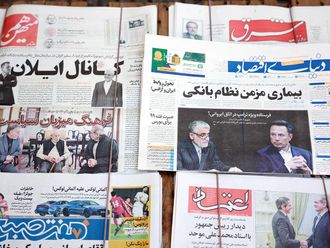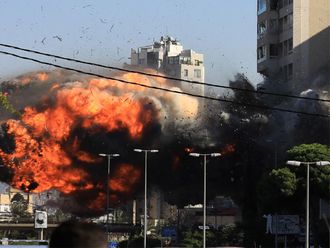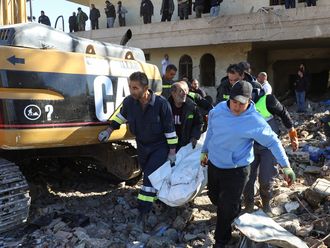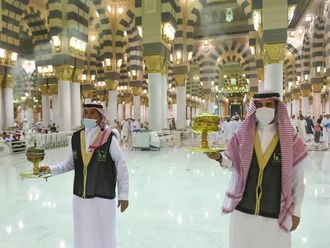Dubai: When Iranian and Western nuclear experts meet next week in Vienna to follow up on earlier talks on Tehran's nuclear programme they will have an unannounced agenda: to see which side is negotiating from a position of strength.
Each side will attempt to test how safe the water is.
Different parties' positions ebb and flow, particularly the Americans', and this, coupled with the absence of a unified stance from the world's six powers, is encouraging Tehran to buy time, many analysts believe.
Therefore, they don't expect tangible results out of Monday's meeting.
"Absolutely nothing," Mustafa Alani, senior adviser and programme director of Security and Terrorism Studies at Dubai-based Gulf Research Centre, replied when asked about his expectations of the meeting.
"The Iranians are buying time. They will give things which are really not in the heart of the issue. The Americans can do nothing, or do very little. The Russians will [set] objectives [to tighten economic sanctions on Iran]."
Alani told Gulf News that he believed the Iranians' strategy of winning time was working.
Since he came to power, US President Barack Obama declared his commitment to use engagement and diplomacy as tools to achieve the objectives of US foreign policy, including the Iranian issue.
While the military option with regard to Iran is not on the table at present, US policy is "basically a policy which has a clear objective to stop the Iranians [from acquiring a military nuclear programme], but it has no clear-cut outcome," Alani explained.
Washington has said it keeps all doors open, including the one for tougher sanctions. But in reality, it doesn't have the support of all of the Security Council members and Germany.
Division has not only become clearer but also deeper. It manifested when US Secretary of State Hillary Clinton visited Moscow on Tuesday seeking explanations from Russia on "what specific forms of pressure Russia would be prepared for to join us" if Iran did not keep its promise to the international community not to develop nuclear weapons.
Threatening Iran with more sanctions will be "counterproductive", Russia Foreign minister Sergei Lavrov responded.
Washington has described October 19, as well as October 25 when experts from the international nuclear watchdog are scheduled to inspect the recently revealed nuclear facility at Qum, as "important dates" that will set the tone for future relations.
"[The] upcoming meetings are extremely important dates," Jeffrey D. Feltman, Assistant US Secretary of State for Near Eastern affairs, said.
Importance
If they were "used properly" they could "begin the process of restoring international confidence in Iran that might lead to international cooperation on the nuclear programme and others," he said in a recent press conference via telephone with a group of journalists in the Gulf region.
The meeting and inspection visit was agreed upon during October 1 talks in Geneva between Iran and the Security Council members and Germany. The talks, which were a landmark and the first direct official discussion between Washington and Tehran in 30 years, were praised by Obama as a "constructive beginning".
During the Geneva talks, Iran also agreed to send low-enriched uranium abroad, possibly to Russia, for enrichment to a higher level.
The plan to send uranium abroad for enrichment— which will be discussed further at a meeting in Vienna next Monday — has been seen as a possible way to defuse the Iranian nuclear standoff.
Washington (Reuters) US spy agencies are considering whether to rewrite a controversial 2007 intelligence report that asserted Tehran halted its efforts to build nuclear weapons in 2003, the Wall Street Journal reported yesterday.
The possible reassessment comes as pressure is mounting from Congress and among US allies for the Obama administration to redo the 2007 assessment, after last month's revelation of a second uranium enrichment plant in Iran.
German, French and British intelligence agencies have all disputed the conclusions of the 2007 National Intelligence Estimate, or NIE, in recent months, the Journal said, citing European officials briefed on the exchanges.
The report reversed earlier findings that Iran was pursuing a nuclear-weapons programme. It found with "high confidence" that Iran halted its nuclear weapons programme in 2003, and with "moderate confidence" that it hadn't been restarted as of mid-2007.
So far, intelligence officials are not "ready to declare that invalid," a senior US intelligence official told the Journal, emphasising the judgment covered the 2003-2007 time frame only. That leaves room for a reassessment of the period since the December 2007 report was completed, the official suggested.
The spy agencies "have a lot more information since we last did" a national intelligence estimate, the official said.












